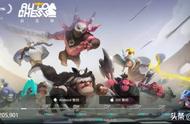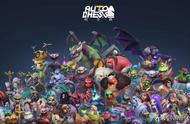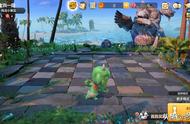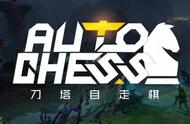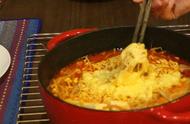[ 图7 历史阵容强度与挖掘得到阵容强度的对比 ]
如图7所示,当棋子个数为10个时,历史阵容与挖掘得到的阵容强度比较。图中显示,最高阵容强度随着花费的增加而增加。该阵容挖掘算法具有很强的优势,挖掘所得到的阵容强于绝大部分历史阵容,该算法可以有效地帮助游戏开发者优化游戏平衡。然而,随着成本的增加,该算法的优势并不明显,但仍然比95%的历史阵容强。
然而,上述算法得到的结果会有一定的随机性。经过多次迭代,它们将趋向于单一羁绊阵容。事实上,得到的结果可能是局部最优的。如果能对每一职业和每一种族进行遗传算法计算,这将产生更好的效果。因此,使用分布式计算进行羁绊遍历。每台计算机负责在单个种族或职业约束下进行挖掘。经过多轮迭代,汇总所有计算结果,可以得到一个趋于全局最优解的阵容。使用分布式计算的羁绊遍历挖掘阵容强度高于不进行遍历的挖掘算法。
C.平衡性分析

[ 图 8 不同种族及职业的使用率 ]
图8显示了挖掘后所得到的阵容和玩家历史最常使用的Top300阵容之间的种族和职业的使用率差异。从阵容挖掘得到的阵容在玩家历史阵容分布上具有一定的相似性。其中,Race0、Race2、Race7和Class1在挖掘得到阵容和历史阵容中的使用率较高,这表明该羁绊更强,有必要削弱该羁绊。而阵容中Class4和Class8使用率很低,有必要对其进行增强。
阵容平衡分析值得广泛研究,需要综合考虑棋子和羁绊的平衡。该阵容强度评估模型和阵容挖掘方法为开发人员提供了参考。游戏新版本发布前可以利用该技术预测棋子和羁绊的强度,为游戏开发者提供理论和技术支持。

本文针对自走棋类型游戏进行平衡性分析进行研究,以参考阵容为基准,以待评价阵容对参考阵容的胜率作为阵容强度。将大量阵容及强度作为输入,训练深度神经网络模型得到了一个阵容强度评价模型。使用阵容评价模型的结果作为适应度函数,利用遗传算法进阵容挖掘和优化。最后,得到了多约束条件下的阵容挖掘结果。挖掘得到阵容的表现优于现有的历史阵容。游戏开发者可以使用获得的阵容来优化游戏棋子和羁绊,并在游戏发布前进一步调整整体平衡。
参考文献:
1. Aung, V. Bonometti,A. Drachen, et al. “Predicting skill learning in a large, longitudinal moba dataset,”IEEE Conference on Computational Intelligence and Games, 2017.
2. Katona, R. Spick,V. J. Hodge, et al. “Time to die: death prediction in dota 2 using deeplearning,” IEEE Conference on Games, 2019.
3. Yang, Qin T, Y. H.Lei. “Real-time esports match result prediction,” arXiv preprintarXiv:1701.03162, 2016.
4. Kalyanaraman. “Towin or not to win? A prediction model to determine the outcome of a DotA2match,” Technical report, University of California San Diego, 2014.
5. Kinkade, L. Jolla,and K. Lim. "Dota 2 win prediction." Univ. California, Tech. Rep.2015.
6. Hodge, S. Devlin,N. Sephton, et al. “Win prediction in esports: Mixed-rank match prediction inmulti-player online battle arena games,” arXiv preprint arXiv:1711.06498, 2017.
7. Wang, W. Shang.“Outcome prediction of DOTA2 based on Naïve Bayes classifier,” 16thInternational Conference on Computer and Information Science, pp.591-593, 2017.
8. E. Almeida, R. C.Correia, D. M. Eler, et al. “Prediction of winners in MOBA games,” 12th IberianConference on Information Systems and Technologies, pp. 1-6, 2017.
9. Porokhnenko, P.Polezhaev, A. Shukhman. “Machine Learning Approaches to Choose Heroes in Dota2,” 24th Conference of Open Innovations Association, pp. 345-350, 2019.
10. Y. Wang, J. J.Zhang, X. Zheng, et al. “Where does AlphaGo go: From church-turing thesis toAlphaGo thesis and beyond,” IEEE/CAA Journal of Automatica Sinica, vol. 3(2),pp. 113-120, 2016.
11. F. Sironi, M. H. M.Winands. “Analysis of self-adaptive monte carlo tree search in general videogame playing,” IEEE Conference on Computational Intelligence and Games, 2018.
12. Świechowski, T.Tajmajer, A. Janusz. “Improving hearthstone ai by combining mcts and supervisedlearning algorithms,” IEEE Conference on Computational Intelligence and Games,2018.
13. Bravi, D. Perez-Liebana,S. M. Lucas, et al. “Shallow decision-making analysis in general video gameplaying,” IEEE Conference on Computational Intelligence and Games, 2018.
14. Jiang, K. Li, B.Du, et al. “DeltaDou: expert-level doudizhu AI through self-play,” Proceedingsof the 28th International Joint Conference on Artificial Intelligence,pp.1265-1271, 2019.
15. Zhang, H. Pan, Q.Fan, et al. “GBDT, LR \& Deep Learning for turn-based strategy game AI,”IEEE Conference on Games, 2019.
16. G. Diaz, P. Perry,R. Fiebrink. “Interactive machine learning for more expressive gameinteractions,” IEEE Conference on Games, 2019.
17. Yang, D. L.Roberts. “Knowledge discovery for characterizing team success or failure in (A)RTS games,” IEEE Conference on Computational Inteligence in Games, 2013.
18. F. Gudmundsson, P.Eisen, E. Poromaa, et al. “Human-like playtesting with deep learning,” IEEEConference on Computational Intelligence and Games, 2018.
19. J. Kim, C. W. Ahn.“Hybrid fighting game AI using a genetic algorithm and Monte Carlo treesearch,” Proceedings of the Genetic and Evolutionary Computation ConferenceCompanion, pp.129-130, 2018.
20. J. Nielsen, M.Scirea. “Balanced map generation using genetic algorithms in the siphonboard-game,” International Conference in Software Engineering for DefenceApplications, pp. 221-231, 2018.
21. Morosan, R. Poli.“Speeding up genetic algorithm-based game balancing using fitness predictors,”Proceedings of the Genetic and Evolutionary Computation Conference Companion,pp.91-92, 2017.
,



